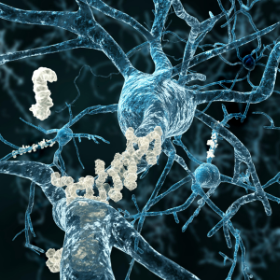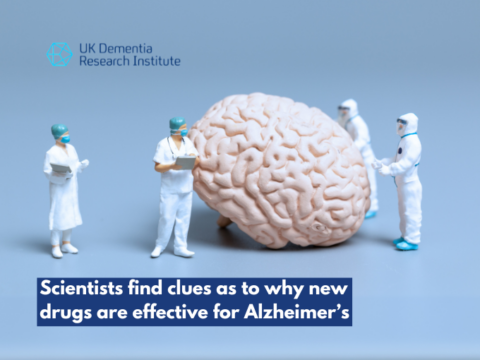 Mutations in the transmembrane domain of Aβ-protein precursor cause early onset familial Alzheimer’s disease. They can increase the ratio of the amyloidogenic Aβ42 to the less-sticky Aβ40, but how exactly do these FAD mutations alter the processing of APP? To address this, researchers led by Michael Wolfe at the University of Kansas, Lawrence, measured all the peptides, including tri- and tetrapeptides, that got released when the γ-secretase enzyme processed 14 different mutant forms of APP. The study, published January 12 in the Journal of Biological Chemistry, found that not all APP mutations increase the Aβ42 to Aβ40 ratio. However, all of them did lead to a rise in Aβ peptides of 45 or more amino acids, suggesting that these longer forms may contribute to the disease.
Mutations in the transmembrane domain of Aβ-protein precursor cause early onset familial Alzheimer’s disease. They can increase the ratio of the amyloidogenic Aβ42 to the less-sticky Aβ40, but how exactly do these FAD mutations alter the processing of APP? To address this, researchers led by Michael Wolfe at the University of Kansas, Lawrence, measured all the peptides, including tri- and tetrapeptides, that got released when the γ-secretase enzyme processed 14 different mutant forms of APP. The study, published January 12 in the Journal of Biological Chemistry, found that not all APP mutations increase the Aβ42 to Aβ40 ratio. However, all of them did lead to a rise in Aβ peptides of 45 or more amino acids, suggesting that these longer forms may contribute to the disease.
- Aβ42 is considered the more pathogenic.
- However, not all APP mutations increase the Aβ42/Aβ40 ratio.
- Fourteen mutations tested generated Aβ peptides of 45 or more amino acids.
“It is interesting to see that FAD-linked APP variants promote the production of longer (≥45 aa) Aβ peptides,” Lucía Chávez Gutiérrez, KU Leuven, Belgium, wrote to Alzforum. “The findings are in line with our observations. Whether these longer peptides are indeed generated in the FAD brain and are disease-causing remains to be clarified,” she wrote. Chávez Gutiérrez and colleagues found that pathogenic presenilin and APP mutations destabilize γ-secretase, thereby promoting the making of longer Aβ peptides (Szaruga et al., 2017; Chávez-Gutiérrez et al., 2012).
To examine the effect of APP mutations in detail, Wolfe and colleagues used ELISAs to measure Aβ42 and Aβ40 produced in cells and cell-free assays using purified γ-secretase. They found that the ratio of Aβ42/Aβ40 did not increase in two out of the 14 substrates, suggesting that an increase in Aβ42/Aβ40 is not necessary for the pathogenesis of FAD. The paper does not address the pathogenicity of many FAD APP mutations that lie outside the transmembrane domain.

 Print This Post
Print This Post




